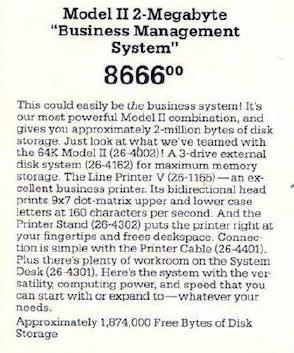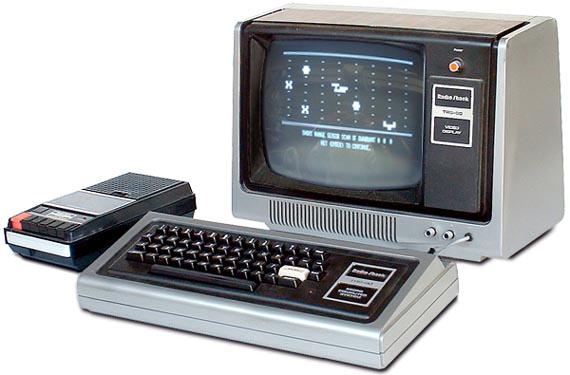 One of my first ‘investments’ I made after college, when I started making a boat-load of money (that’s how it felt, at least) with my new job, was a TRS-80 computer from Radio Shack.
One of my first ‘investments’ I made after college, when I started making a boat-load of money (that’s how it felt, at least) with my new job, was a TRS-80 computer from Radio Shack.
Today I ran into an article on Mashable about that Trash-80 that brought back memories of sitting on that machine for long nights, the ash tray overflowing, discovering all the things you could do with BASIC.
Despite my feeling of being totally rich, my pay check of nearly 2000 Deutsch Marks would not allow me to buy anything but the entry model of this computer. At that time the US Dollar was around 4 Marks which brought the price of that computer to an amazing DM 3000 – one and a half month’s pay. This made me think about what that top model Tandy computer would cost in today’s Dollars – – – turns out to be over 26 thousand Dollars!
And looking at the exchange rate from the other side – I made only $1500 in today’s Dollars and I thought I was rich? Now I wonder if the exchange rate of DM to US$ really reflected the relationship of cost of living. A quick Google search reveals that in 1980 a bread in the US cost about 50 cents, while a bread in Germany cost DM 2.50 – so the exchange rate is at least in the ballpark.
Maybe I should have moved to the US right after college – I might have been able to afford one of those fancy floppy drives from Radio Shack…
In case the TRS-80 catalog on Mashable ever goes away, here’s a copy…

